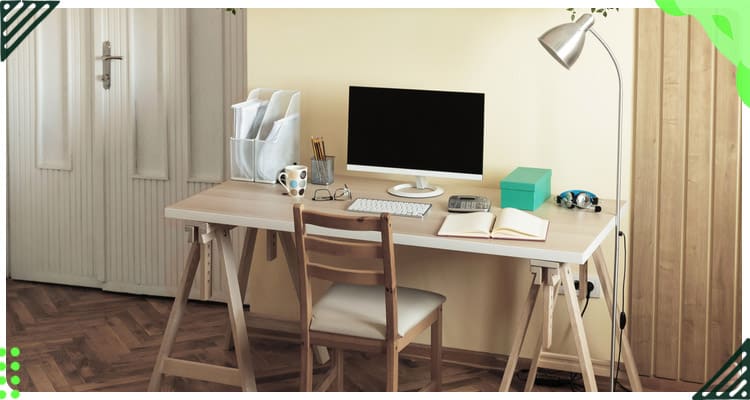Starting an online job, especially if you’re used to working in an office, can be jarring.
You need to have the right personality for remote work. Before signing up for the job, it helps to check for any red flags regarding the boss or the work culture.
So, how do you smoothly transition to remote work in a way that minimizes friction?
Here are several tips for you on how to do exactly that.
Have a Designated Workspace

The most crucial thing about working remotely is a proper workspace.
And no, you don’t have to splurge on an expensive computer setup. A trusty laptop and a stable Internet connection would suffice.
When setting up your workstation, consider the amount of leg space.
Make sure your setup has enough natural light too since this can reduce eye strain and headaches. (Not to mention, it’s a great mood booster!)
Set Goals for Yourself

A certain level of freedom comes when you transition to a remote workforce.
No boss is breathing down your neck, though this can be a double-edged sword.
You constantly need to be mindful of your deadlines. Otherwise, you risk delaying the progress of ongoing team projects.
But more than that, setting goals for yourself is a way to stay motivated. (After all, you can’t turn to your coworkers for a quick chat when you’re feeling a slump.)
Creating goals also helps you evaluate your performance.
Try to Limit Distractions

Compared to an office, your home might be more distracting.
You may have your family members around you at all times. Aside from that, you need to compete with the noise outside as well.
Thus, make sure your workspace has as few distractions as possible.
If you have caregiving responsibilities, build a routine that can seamlessly blend in with your work schedule.
Keep Your Communication Lines Open (Within Limits, Of Course!)

Frequent communication is necessary when working remotely.
This is because you, your managers, and your coworkers aren’t in the same space. The lack of face-to-face interactions means you can’t rely on non-verbal cues, so you have to be as clear as possible.
Keep your team in the loop for any progress made at work. Let them know if you need help or if any issue arises.
Of course, make it a habit to disconnect from the Internet after work hours too. Resist the urge to check your emails and communication channels once you’re done for the day.
Having a mental commute can also help with that shift from work to home.
Check Out Co-Working Spaces

It’s nice to get out of the house once in a while.
If you feel like stretching your legs for a bit, check out co-working spaces in your area.
These places often provide a change of scenery from the usual four corners of your room.
For a small fee, you get access to high-speed Internet access and perhaps even a cup of coffee (if the establishment offers it).
Co-working spaces are also a nice way to meet other remote workers and cultivate a network.
But if such places do not exist in your city, your local coffee shop will do.
Importance of Proper On-site to Remote Work Transition

The transition from in-office to remote work is a considerable change.
It can be difficult for people who thrive in a traditional office. They won’t have many chances for face-to-face interactions, which can induce feelings of loneliness.
So, if you’re considering this career move, think very hard and be as prepared as you can.
On that note, if you have been thinking about making the transition to remote work, check out Remote Staff’s job listings. These are regularly updated, and we currently have several vacant jobs in multiple industries.
Remote Staff is a pioneer for telework in the Philippines and has been in business since 2007. The company also provides after-work support long after we match you with a client.
Sounds promising? Register with us today!

